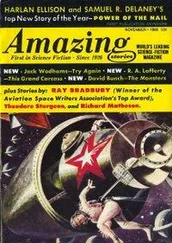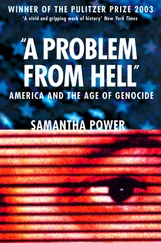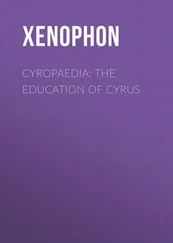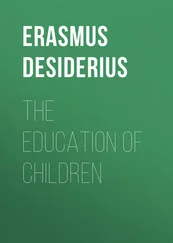Before Mum brought Stephen and me back to Ireland, she asked us not to tell our dad about Eddie. If we needed to mention that there was an “Eddie” in Kuwait, we were told to identify him as “Eddie McGrath,” an Irish doctor who apparently also worked in Kuwait City.
To a seven-year-old, this seemed like high-stakes mischief. I was invigorated to have been let into an exclusive club with grown-ups who now trusted me with a secret. I could tell that whatever was happening between Mum and Eddie was making her happier than I could remember seeing her with my dad.
Unfortunately, not long after we returned to Ireland, my father asked me point-blank whether my mother had been with Eddie Bourke in Kuwait. I answered truthfully that she had, presuming that Mum would not want me to lie in response to a direct question. She reassured me later that I had done the right thing. But when she moved back to Dublin from Kuwait, although she returned to live at home with us, she slept in the guest bedroom. She and my father began leading separate lives.
My dad, then thirty-six, had himself become involved with Susan Doody, a twenty-five-year-old teacher at a Dublin primary school, another welcome new presence in my and my brother’s lives. While Susan showed more tolerance for pub life than my mother, she still preferred luring Dad away from Hartigan’s to the latest Bergman or Fassbinder film, rugby match, or golf tournament. “He could spend hours watching any ball move on any surface,” she marveled.
In Catholic Ireland, Susan kept quiet about her relationship with my dad, believing that the nuns who ran the school where she taught would come under pressure to let her go if they found out that she was dating a married man. Still, in the coming years, she would play a leading role in prodding my dad to change his lifestyle, appealing to him to find a job that was more fulfilling than his part-time dental practice. “Let’s have a drink and talk about it,” he would say heartily, changing the subject.
Even when Eddie emerged on the scene and my father and Susan became more heavily involved, it never occurred to me that my parents’ marriage could end. To be fair, I had the facts on my side: marriages in Ireland weren’t allowed to end. The Catholic Church was extremely influential, and the priests made sure that Irish law prohibited not only contraception and abortion, but also divorce. And if marriages were to start ending because of “the drink”—known across the land as “the good man’s fault”—it seemed to me that few families would remain intact.
Despite the turbulence around me, I thought life was good. My father projected a sense that he lacked for nothing. He drank too much and clearly didn’t do much work, but he had infinite time for me—a child’s only true measure of a parent. My mother worked feverishly, but when we were together, she managed to make me feel as though time were standing still.
However, not long after she returned from Kuwait, Mum told Stephen and me she was hoping to move with us to the United States. Before she did so, she told my father about this possibility, stressing that she would not make the move if he would get help for his drinking problem. He refused.
My father battled Mum in an Irish court, trying to gain sole custody of us. Each depicted the other as unfit to raise kids: my father because he drank too much; my mother because she worked too much and was having an affair. My father didn’t help his cause when he appeared in court once after “a liquid lunch,” giving my mother more ammunition for her claim that he was incapable of taking care of two children.
When my father lost in the lower court, he appealed the case, which made its way to the Supreme Court. Once again, the court ruled in her favor. My dad didn’t prepare properly, and his itinerant career left him unable to demonstrate that he had the means to financially support his family. Despite the judge’s condescension to Mum about her education, in 1979 the court granted her permission to leave Ireland with my brother and me.
Given Irish tradition and the stigma associated with separating from one’s spouse, it is remarkable that she was awarded custody. But the state attached three conditions if Mum wanted to take us to the United States. First, my brother and I were to be raised Catholic. We were to continue attending Mass and studying religion so that we would receive the sacraments (communion and confirmation for my younger brother, confirmation for me, and regular confession for us both). Second, my mother would home-school us in the Irish language. And finally, we were to return to Ireland to stay with my dad during the summers and over holidays like Christmas and Easter.
I did not experience the news of moving to America as a bombshell announcement. Mum must have casually introduced the idea, herself not then expecting that the move would be permanent.
We boarded a plane bound for the United States in September of 1979. I was just nine years old, but I had a clear sense that Mum would do important medical work and then bring us back to Dublin, our home.
It would be years before I understood that we had immigrated to the United States.
 2
2 
AMERICA
When Mum, Stephen, and I landed in Pittsburgh, Pennsylvania, I was dressed for the occasion in a Stars and Stripes T-shirt. Mum, then just thirty-six years old, was wearing brown corduroys and a form-fitting turtleneck. All these years later, I remember her face at the airport as we awaited our luggage: she was exhausted. Yet somehow, she was going to start her American medical career the next day.
What must she have felt when we landed? Relief that she had somehow pulled off the move? Trepidation at a new life? I imagine that she was probably just thinking: “Where in God’s name are the bags? Sam and Steve need sleep.”
For my part, I knew that my mother had left my father behind in Ireland. But that she had left him for good—that they would never again even argue over dinner together—had not entered my nine-year-old consciousness. It wouldn’t for a very long time.
I scoured the conveyor belt for our suitcases, crammed with everything we could fit from our lives in Ireland: the components of my Irish school uniform; “runners” that would become “sneakers”; a stash of mystery novels; and “Teddy,” my long-suffering teddy bear. Mum had shipped several Dunlop tennis rackets, her squash racket, her most important medical reference books, and my maroon Raleigh bicycle. She would go to great lengths to reassemble the bike—only for me to quickly disown it as out of fashion in a neighborhood where dirt bikes were all the rage.
As we exited the baggage area, I recognized the middle-aged, medium-built man with a large crop of silver-gray hair who greeted us; it was Eddie Bourke, with whom Mum had told us we would be living. By then, she had been seeing Eddie for five years and he had separated from his wife.
During our time in Kuwait, Eddie had been a playful companion, taking Stephen and me to the beach and teaching me the basics of chess, as well as a few Arabic phrases. But what stood out most was his ability to lighten our days with ridiculous rhymes. He would recite:
There was an old lady from Clyde
Who once ate an apple and died.
Inside the lamented,
The apple fermented,
To cider inside her inside.
Or he would teasingly urge us to join in:
Way up on the mountain,
Green grows the grass,
Down came the elephant,
Читать дальше
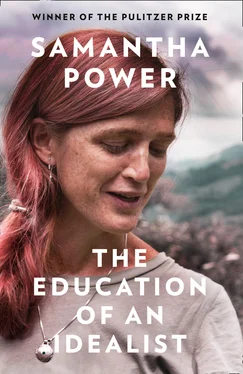
 2
2 

